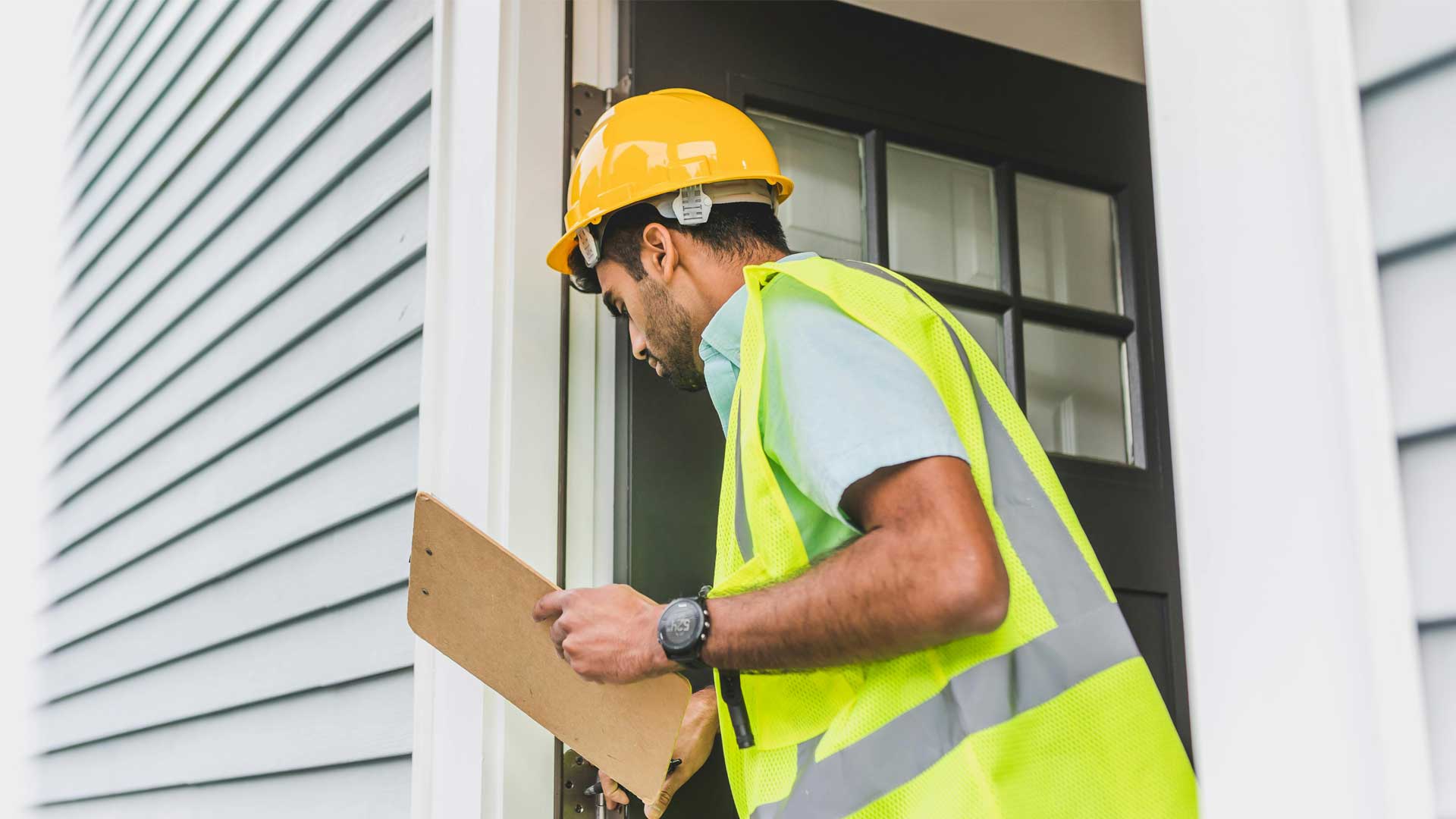There’s so much to learn about real estate transactions as a first-time home buyer. Timelines, contracts, inspections, appraisals, loan deadlines — it’s a lot for anyone to wrap their brains around, especially for first-timers. I like to guide all my clients step-by-step through the process so they know exactly to expect, when. In my career, I’ve noticed that there’s often a lot of nervousness around the home inspection: You found the home of your dreams; you got your offer accepted; and now it’s time to look under the hood. What if you don’t like what you see? It’s scary, for sure. But it’s better to discover any flaws, defects, or problem areas ahead of time, so you can use them to your advantage in negotiations or move on while there’s still time. I’ve created this inspection checklist as a first-time homebuyer’s 101 of sorts, to help protect all prospective buyers from unpleasant surprises that could break hearts — and bank accounts.
What is a home inspection?
A home inspection is a thorough examination of a home that’s under contract for any potential issues that could negatively impact the buyers down the line. As soon as you go under contract, you’ll want to hire a professional inspector to provide an inspection report on the home’s condition. Important dates and deadlines to note are the Inspection Objection and Inspection Resolution deadlines. In Colorado where I live and practice real estate, home inspectors aren’t regulated and don’t require a license — so I advise all my clients to do some thorough independent research before hiring an inspector: read reviews, reach out to friends, call and interview potential inspectors. I’m always happy to make recommendations based on my network, but at the end of the day, it’s of the utmost importance that buyers go with an experienced inspector they trust. Once an inspection report has been provided, buyers have a chance to renegotiate or even walk away from the transaction if necessary.
And while no one likes learning that their dream home is flawed, reviewing any red flags via a home inspection is one of the best safeguards for protecting homebuyers in today’s market. In many cases, home inspections don’t reveal anything deeply concerning. But when they do, it gives the buyers a chance to renegotiate with the sellers in order to find a fix. So even if you have a great feeling about the home and property, make sure you’re well-informed when walking into the inspection process to protect yourself and your purchase.
What is an inspection objection?
The inspection objection is a list of repair requests made by the buyers that’s delivered to the sellers. Once received, seller has the option to perform any requested repairs, offer concessions to cover the costs, or opt to do nothing. If the sellers solution isn’t satisfactory for the buyer, then the buyer can walk away without losing their earnest money.
How do I find a home inspector?
A good place to start is by talking to your real estate agent. They’ll have a roster of people they’ve worked with and trust. I also always encourage my clients to do some independent research of their own by searching google reviews and talking to friends and family. Always make sure the inspector is insured, even if you live in a state where they don’t need to be licensed.

The ultimate first-time homebuyer’s inspection checklist
A seasoned professional inspector will know what to look for and will be able to talk you through the process. However, it’s important for buyers to know the crucial components and ask the right questions. The more you know about the home inspection process, the easier it will be to sail through the inspection resolution process. You can bring this checklist with you when evaluating a property with your home inspector.
- Foundation: Do walls or the foundation show any alarming cracks outside of normal settlement? Is there any sign of bulging or moisture (past or present) in the basement? Are any tree roots encroaching on the foundation that could be a problem down the road?
- Plumbing/HVAC: An inspector should check for leaks, damage, stains, and rust of corrosion at pipe sites. How old is the water heater? Most only last between 8 and 12 years, so if the water heater is approaching 7 or 8 years old, it will likely need to be replaced in the near future. Make sure your home inspector looks closely at all of the property’s plumbing and the HVAC systems. If anything looks questionable, consider bringing in a licensed plumber or HVAC specialist to do a closer inspection — both are big-ticket items worthy of a closer look from a licensed, specialized pro.
- Electrical: Just like with plumbing and HVAC, if your home inspector notices anything strange about the electric, it’s worth it to bring in a licensed electrician to do a thorough investigation.
- Structural: Are the sides of the house bowed? Do any windows or doors appear to be sagging? This could indicate significant structural issues.
- Exterior grounds: Look for standing water; evidence of termite damage; rot or leaks; improperly maintained landscaping; and vines, roots, trees, or shrubs that are encroaching on the foundation or dangling over the roof.
- Roof: Are there missing or damaged shingles? Are the gutters clear and in good shape or are they sagging and rusted? Is the chimney cracked or damaged?
- Attic, basement, or crawl space: This is another place to look for structural damage or decay and evidence of moisture. Check any exposed insulation for mold or missing pieces, and make sure there are no open electrical splices.
- Laundry: Are the laundry hookups properly drained and ventilated?
- Kitchen: Is the kitchen exhaust properly ventilated? Are the outlets equipped with GFCI outlet protection? Make sure there are no leaks, rust, or improper drainage related to sink plumbing? Are any of the appliances showing signs that they’re at the end of their life?
- Bathrooms: Check drainage in sinks, showers, and bathtubs. Check hot water and water pressure. Are there any signs of water damage, moisture stains, or mold? Does the toilet flush properly? Is caulk old and cracked or stained with mold?
- Sewage/septic: Depending on the property, waste will either flow through city sewer lines or into a septic tank. If you have sewer, you’ll want to make sure the pipes on the property are free from cracks, encroaching roots, and rust damage, as this can be costly to repair/replace. If the property has a septic tank, it will need to be drained and inspected by a septic professional before you close.
Get A Seller’s Disclosure Statement Before Inspection
A seller’s disclosure is a document provided by the seller that details any property defects that they are aware of. As a first-time homebuyer, you should aim to get a seller’s disclosure before your official inspection so you have an idea of what to expect. It’s helpful to be aware of any problem areas ahead of time so your inspector can properly assess the situation.
Ask The Right Questions
Once you’ve found the right home inspector, come up with a list of questions to ask: How much the inspection will cost? What’s included for that price? Is there anything that’s NOT included that you should be aware of as a first-time homebuyer? Perhaps there are some specialized types of inspections, such as radon or a sewer scope, that will come as an additional cost or will need to be scheduled separately with a different professional. Also, be aware of your inspection objection deadline, and make sure that your home inspector will be available to perform the work and supply the inspection report before the objection deadline.
How to Negotiate After the Inspection
Every home inspection is bound to dig up a few skeletons. Your real estate agent will be able to help you navigate the negotiation of repairs and/or concessions. Remember that minor repairs — and anything considered normal “wear and tear” — will likely be your responsibility as the homebuyer.
Congratulations on getting under contract on a new home! If you have any questions about the first-time buying process or how to navigate and negotiate the inspection process, definitely reach out to your agent. If you aren’t working with an agent and are looking to get started on your home search, I’d love to help you out or refer you to someone wonderful in your area who can.
Got questions about the homebuying process? Email me anytime at [email protected] and follow me on instagram and facebook for more home buying tips and tricks!


